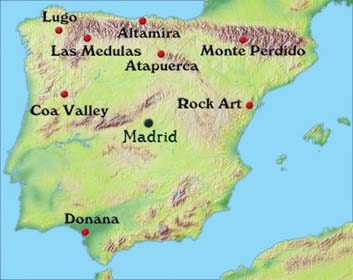Spanish judge abandons probe into dictator Franco's crimes
 Madrid- Spanish judge Baltasar Garzon on Tuesday unexpectedly gave up his inquiry into alleged human rights crimes committed during the 1936-39 civil war and General Francisco Franco's ensuing 36-year dictatorship.
Madrid- Spanish judge Baltasar Garzon on Tuesday unexpectedly gave up his inquiry into alleged human rights crimes committed during the 1936-39 civil war and General Francisco Franco's ensuing 36-year dictatorship.
Franco and his collaborators could no longer face legal responsibility for crimes, Garzon, a magistrate at the National Court, said in a judicial resolution after receiving the death certificates of the dictator and 44 others.
Garzon also said he was not responsible for investigating mass graves where Franco's opponents were buried. He transferred that responsibility to the authorities in the regions where the graves were located.
The public prosecutor's office had appealed against Garzon's probe, opposing his argument that Franco's abuses could be regarded as crimes against humanity.
The prosecutors also argued that the crimes of the Franco regime had been covered by the amnesty granted to the dictator's collaborators in 1977, two years after his death.
Garzon's own court then suspended the opening of dozens of mass graves which had been authorized by the judge, including one believed to contain the bones of poet Federico Garcia Lorca.
The court was due to decide whether Garzon was competent to investigate the crimes of Franco, whose uprising launched the civil war and whom the judge holds responsible for the deaths of more than 100,000 people in acts of repression during the war and dictatorship.
Spain's first judicial investigation into the fate of Franco's victims had divided the country, with victims' families, human rights groups and the political left supporting it, while the opposition conservatives accused the judge of reopening old wounds.
A total of more than 500,000 people died in the war in which atrocities were committed on both sides.
However, the Franco regime paid tribute to Francoists killed in the war, while tens of thousands of republicans were forgotten in mass graves.
Citizens' associations have begun digging up their remains in the recent years, giving new burials to some 4,000 people.
In 2007, Prime Minister Jose Luis Rodriguez Zapatero's Socialist government approved a ground-breaking law aimed at breaking the silence on Franco's legacy and at rehabilitating the memory of his victims.
The law contained provisions such as the removal of Francoist monuments and the possibility of support to associations exhuming remains from mass graves.
However, the government was accused of dragging its feet in putting the law into effect, and Garzon's investigation gave new hope to the families of Franco's victims.
It was not logical for the Spanish judiciary to have investigated human rights abuses in Latin America, while not looking into similar cases on Spanish soil, according to those defending Garzon's probe.
Some of those opposing the investigation, however, see left-wing radicalism and Spain's instability as having partly justified Franco's uprising against the legal republican government. (dpa)